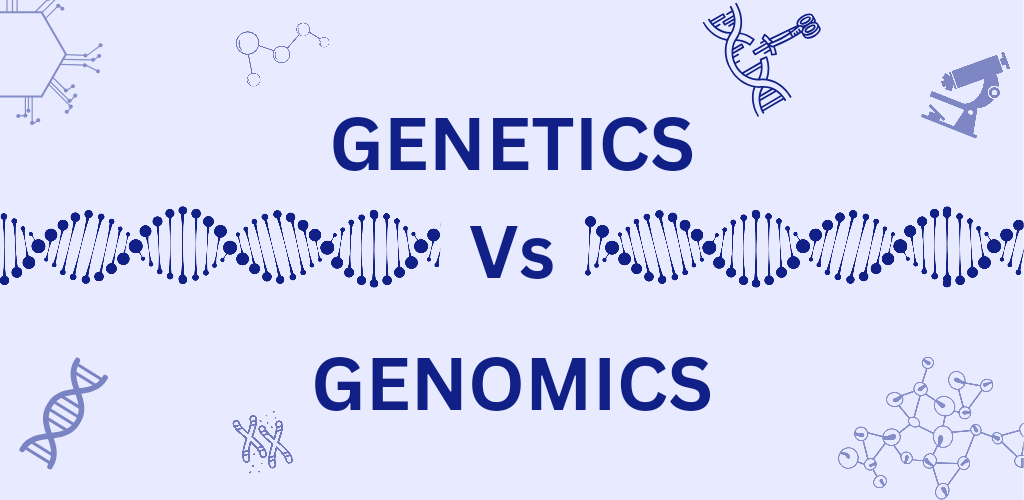Building a Strong Foundation: How Genetic Testing Supports Childhood Growth and Wellness
In a world that’s swiftly leaning into precision health, understanding how genes shape childhood development isn’t just fascinating—it’s crucial. As science continues to peel back the layers of our DNA, genetic testing is rapidly emerging as a cornerstone of pediatric care. This isn’t just about diagnosing rare conditions anymore. We’re entering an era where a pediatric wellness DNA test can actively support a child’s lifelong health journey, starting from their earliest years.
Genes Are Not Just Destiny—They’re Direction
Every child carries a unique genetic blueprint. While these codes don’t dictate every outcome, they do provide vital clues—especially when it comes to predicting growth patterns, identifying metabolic vulnerabilities, and understanding predispositions to common conditions like obesity or developmental delays. This is where child growth DNA tests come into play, offering parents and clinicians a proactive lens into a child’s biology.
The Growing Up in Singapore Towards Healthy Outcomes (GUSTO) study made a breakthrough by linking specific genetic variants with early childhood growth, brain development, and placental function. Notably, genes such as RAB11FIP4, MTMR7, and DNMT1 were identified as influential players in developmental trajectories (4). These findings suggest that understanding a child’s genomic profile may offer predictive power over a wide spectrum of health markers—not just physical growth, but cognitive and neurological development as well.
Beyond Weight: DNA as a Tool for Fighting Childhood Obesity
Let’s get one thing straight: school lunches and exercise charts won’t fix what’s wired genetically. In Denmark, for instance, the rate of overweight children climbs steadily through the early school years, peaking dramatically in adulthood. Standard interventions have shown limited success (2). So what’s missing?
A comprehensive kids genetic health plan can bridge this gap. Genetic testing can help flag children at higher risk of obesity or metabolic syndrome long before symptoms appear, enabling highly personalized nutrition and activity strategies. By layering genetic insights with lifestyle data, we can design smarter interventions that go beyond the one-size-fits-all mold.
The Technology Is Ready—but So Are the Ethics?
There’s no denying the power of genomic tools. Next-generation sequencing and bioinformatics pipelines have transformed diagnostics, making it easier than ever to spot rare growth disorders or metabolic syndromes early on (3). Still, with great data comes great responsibility.
The British Society for Genetic Medicine recently updated its ethical framework for childhood genetic testing, emphasizing the importance of balancing benefits and risks. Especially when using broad panels or whole-genome sequencing, the possibility of uncertain or incidental findings can complicate clinical decisions (1). That’s why genetic testing in children must be guided not just by lab capacity but by ethical clarity and expert counseling.
Using genetic data to inform parental decisions is appropriate—but using a child’s test solely to benefit others in the family crosses an ethical boundary. These aren’t just tests; they are portals into a child’s future, deserving of careful, child-centered application.
From Diagnostics to Daily Life: Building the Future of Pediatric Wellness
Imagine a future where a wellness genetic testing for kids package becomes as routine as a vaccination schedule. Parents wouldn’t just know if their child is lactose intolerant—they’d understand their bone growth trajectory, vitamin metabolism quirks, even neurodevelopmental sensitivities.
Such comprehensive insight could shape everything from diet and sleep patterns to educational styles and emotional support. It also positions the family to take action before problems escalate. No more guesswork—just clear, biologically informed guidance tailored to the child.
This isn’t science fiction anymore. With interdisciplinary teams of geneticists, pediatricians, and data scientists working in tandem, the pediatric wellness DNA test is evolving into a tool not just for healing, but for empowering.
Final Thoughts: A DNA Roadmap for Lifelong Health
Childhood is not just a phase—it’s the foundation. And just like any foundation, its strength determines everything that follows. By integrating genetic testing into early pediatric care, we unlock the potential to guide not only physical growth but mental, emotional, and metabolic resilience.
Parents, clinicians, and policymakers must recognize that we now have tools to decode growth mysteries, mitigate future risks, and optimize wellness from the inside out. With ethical safeguards and a personalized approach, the future of child health looks not just informed—but intelligently designed.
Let’s build that future—with precision, with compassion, and with the unshakable belief that every child deserves a head start, written in their DNA.
References:
- Hart, R., Clarke, A., & Hall, A. (2022). 309 Genetic testing in childhood: ethics in practice. Archdischild, A299.2-A300. https://doi.org/10.1136/archdischild-2022-rcpch.485
- Thomsen, L. T., Schmidt-Persson, J., Damsgaard, C. T., Krustrup, P., Grøntved, A., Krølner, R. F., Nielsen, G., Lundbye-Jensen, J., Skovgaard, T., Mølgaard, C., Hansen, A. B. G., Hoeeg, D., Larsen, M. N., Lund, L., Melby, P. S., Pedersen, N. H., Troelsen, J., Nordsborg, N. B., & Toft, U. (2023). Generation Healthy Kids: Protocol for a cluster-randomized controlled trial of a multi-component and multi-setting intervention to promote healthy weight and wellbeing in 6–11-year-old children in Denmark. Research Square (Research Square). https://doi.org/10.21203/rs.3.rs-3423677/v1
- Van Der Kaay, D. C. M., Rochtus, A., Binder, G., Kurth, I., Prawitt, D., Netchine, I., Johannsson, G., Hokken-Koelega, A. C. S., Elbracht, M., & Eggermann, T. (2022). Comprehensive genetic testing approaches as the basis for personalized management of growth disturbances: current status and perspectives. Endocrine Connections, 11(11). https://doi.org/10.1530/ec-22-0277
- Uechi, L., Jalali, M., Wilbur, J. D., French, J. L., Jumbe, N. L., Meaney, M. J., Gluckman, P. D., Karnani, N., Sakhanenko, N. A., & Galas, D. J. (2020). Complex genetic dependencies among growth and neurological phenotypes in healthy children: Towards deciphering developmental mechanisms. PLoS ONE, 15(12), e0242684. https://doi.org/10.1371/journal.pone.0242684




